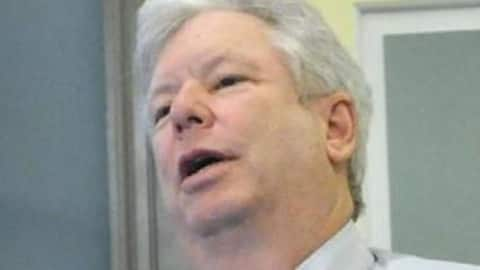US' Richard Thaler wins 2017 Nobel Prize for Economics
What's the story
American scholar Richard Thaler has won the 2017 Nobel Prize for Economics for his work in behavioral economics. The announcement was made by the Royal Swedish Academy of Sciences. The contributions of Thaler of the Chicago University "have been instrumental in creating the new and rapidly expanding field of behavioral economics". Last year, the $1.1mn prize was won by Oliver Hart and Bengt Holmström.
Profile
Do you remember Thaler from 'The Big Short'?
Thaler is the Ralph and Dorothy Keller Distinguished Service Professor of Behavioral Science and Economics at the Chicago University's Booth School of Business. He has authored several books including 'Quasi-rational Economics', 'The Winner's Curse', and recently, 'Misbehaving: The Making of Behavioral Economics'. He has also founded asset management firm Fuller & Thaler. Thaler appeared in a cameo in 'The Big Short' alongside Selena Gomez.
Work
The citation lauded Thaler for his numerous contributions
Thaler is a leading proponent of the "nudge theory", which suggests incentives can motivate people to change decisions. One of his theories is on "mental accounting": using different reference points while making decisions. People often create separate accounts in their mind to simplify decisions. Thaler showed that consumers' fairness concerns might stop producers from raising prices during high demand, but not during rising costs.
Twitter Post
'Thaler has made economics more human'
"He's made economics more human" - Peter Gärdenfors on Richard Thaler, just awarded the Prize in Economic Sciences. https://t.co/uFs0okbJUe
— The Nobel Prize (@NobelPrize) October 9, 2017
Response
Thaler signed off with a short humor-laden speech
In a brief but humorous interaction post the announcement, Thaler said the most important aspect of his research, according to himself, is that economic agents are human and economic models have to take that into account. He lamented that his Hollywood career wasn't part of the official announcement speech. As for the prize money, Thaler said he would spend it "as irrationally as possible".
Do you know?
Raghuram Rajan was a top contender this time
Two days before the announcement, research company Clarivate Analytics had listed former RBI Governor Raghuram Rajan as one among the top six probables for the 2017 Economics Nobel. According to Clarivate, Rajan's contribution to economics illuminated "the dimensions of decisions in corporate finance."
History
Did you know the 'Economics Nobel' isn't actually a 'Nobel'?
The Nobel Prize, first awarded in 1901, is given for outstanding contributions in the fields of Chemistry, Literature, Physics, Peace, and Physiology/Medicine. The Nobel Prize in Economics, officially called "Sveriges Riksbank Prize in Economic Sciences", wasn't initially part of the Nobel Prize. It wasn't mentioned in Alfred Nobel's 1895 will; it was introduced in 1968 to mark the 300th anniversary of Sweden's central bank.
Facts
More interesting tidbits about previous winners
Since 1969, 48 prizes have been awarded for achievements in Economics. Just one laureate has received 24. The average age of Economics laureates is 67; the youngest was 51 and the oldest 90. Thaler is 72. Surprisingly, only one woman, Elinor Ostrom (2009), has won the honors till date. The panel says they are concerned and are taking corrective measures.
Winners
The other Laureates of 2017
The International Campaign to Abolish Nuclear Weapons was awarded the 2017 Nobel Prize for peace. In literature, "Remains of the Day" author Kazuo Ishiguro was honored. Jacques Dubochet, Joachim Frank and Richard Henderson shared the Nobel for chemistry. In physics, Rainer Weiss, Barry Barish and Kip Thorne were acknowledged. Jeffrey Hall, Michael Rosbash and Michael Young shared the honors in medicine.
